AfD local election win: watershed moment for far-right in Germany?
Discontent over immigration and Berlin’s green policies appears to have fuelled support for populist party
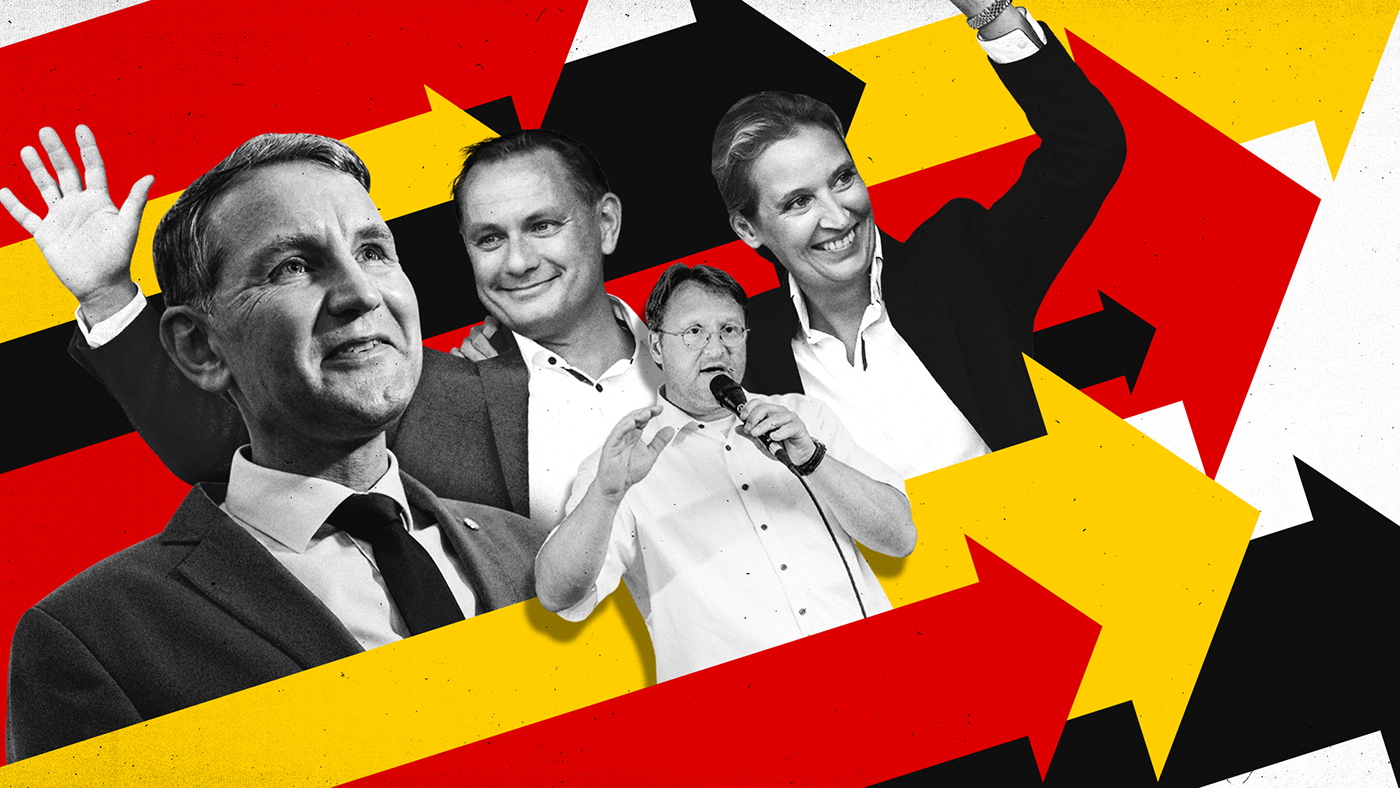
A free daily email with the biggest news stories of the day – and the best features from TheWeek.com
You are now subscribed
Your newsletter sign-up was successful
Germany’s far-right Alternative für Deutschland (AfD) has caused shock across the political spectrum by winning an election for the first time in the party’s 10-year history.
In what public broadcaster ARD described as a “watershed moment”, AfD candidate Robert Sesselmann claimed 52.8% of the vote in Sunday’s district council run-off election in Sonneberg, in the eastern state of Thuringia. Sesselmann’s victory over incumbent district administrator Jürgen Köpper, of the center-right Christian Democrat Party (CDU), “comes amid a broader rise of the AfD in national polls”, said Politico’s politics reporter Hans von der Burchard.
Alice Weidel, the AfD’s national leader, told the Financial Times that the Sonneberg victory was a “milestone”. Winning “direct decision-making powers” would enable her party to “put a stop” to “the whole nightmare” of Sonneberg accepting refugees, Weidel said.
The Week
Escape your echo chamber. Get the facts behind the news, plus analysis from multiple perspectives.

Sign up for The Week's Free Newsletters
From our morning news briefing to a weekly Good News Newsletter, get the best of The Week delivered directly to your inbox.
From our morning news briefing to a weekly Good News Newsletter, get the best of The Week delivered directly to your inbox.
‘Threats from outside and within’
A survey last week by broadcaster ARD suggested that around 19% of voters would back the AfD in federal elections – putting the party ahead of Chancellor Olaf Scholz’s Social Democratic Party, on 17%, and the other two members of the ruling coalition, the Greens (15%) and the Free Democratic Party (6%). Only the CDU had a higher level of support, at 29%.
The AfD “seems to be scoring points among voters on two political stances in particular: opposing immigration and climate protection”, said Deutsche Welle.
The party has long claimed that “there is a threat to German culture”, political analyst Johannes Hillje told taz newspaper, and that “this came from the outside, through migrants”. But, he added, “now the narrative is that this threat is also coming from within, through the transformation of society to climate neutrality – a central project of the centre-left coalition in Berlin and the Green Party”.
Since the government unveiled plans to phase out gas- and oil-fired boilers and move to renewable heat pumps, discontent has “reached a new peak in Sonneberg and in many other towns and cities in Germany”, said the FT.
A free daily email with the biggest news stories of the day – and the best features from TheWeek.com
“The cheek of it, it’s just unbelievable,” an AfD voter reportedly said. “I don’t need a new boiler, mine works very well, thank you, and they can’t force me to replace it.”
‘Lack of trust in established parties’
The election result in Sonneberg has triggered a “frantic search for explanations” and a blame game between Germany’s other parties, said historian Katja Hoyer in The Spectator. That close to one in five people seem willing to vote for “a relatively new party which contains many far-right extremists shows their lack of trust in the established political spectrum”, she wrote, and “in its willingness to solve the big issues of the day”.
The “overall mood in Germany is increasingly grim”, said Ronald G. Asch, former chair of early modern history at the Iniversity of Freiburg. “However crude its rhetoric may be”, he wrote for The Critic, the AfD is good at “giving a voice to this discontent”.
And the spread of such discontent means the German political system is likely to become “even more unstable over the next couple of years”, Asch added. German politicians may “learn the hard way that telling fairy tales to voters such as ‘the Euro and European integration policies will make you ever more prosperous’ will only take you so far”.
Jamie Timson is the UK news editor, curating The Week UK's daily morning newsletter and setting the agenda for the day's news output. He was first a member of the team from 2015 to 2019, progressing from intern to senior staff writer, and then rejoined in September 2022. As a founding panellist on “The Week Unwrapped” podcast, he has discussed politics, foreign affairs and conspiracy theories, sometimes separately, sometimes all at once. In between working at The Week, Jamie was a senior press officer at the Department for Transport, with a penchant for crisis communications, working on Brexit, the response to Covid-19 and HS2, among others.
-
 Political cartoons for February 20
Political cartoons for February 20Cartoons Friday’s political cartoons include just the ice, winter games, and more
-
 Sepsis ‘breakthrough’: the world’s first targeted treatment?
Sepsis ‘breakthrough’: the world’s first targeted treatment?The Explainer New drug could reverse effects of sepsis, rather than trying to treat infection with antibiotics
-
 James Van Der Beek obituary: fresh-faced Dawson’s Creek star
James Van Der Beek obituary: fresh-faced Dawson’s Creek starIn The Spotlight Van Der Beek fronted one of the most successful teen dramas of the 90s – but his Dawson fame proved a double-edged sword
-
 Penile fracture risk higher over Christmas
Penile fracture risk higher over ChristmasTall Tales And other stories from the stranger side of life
-
 Confused man's front lawn is stolen
Confused man's front lawn is stolenTall Tales And other stories from the stranger side of life
-
 Bully XL dogs: should they be banned?
Bully XL dogs: should they be banned?Talking Point Goverment under pressure to prohibit breed blamed for series of fatal attacks
-
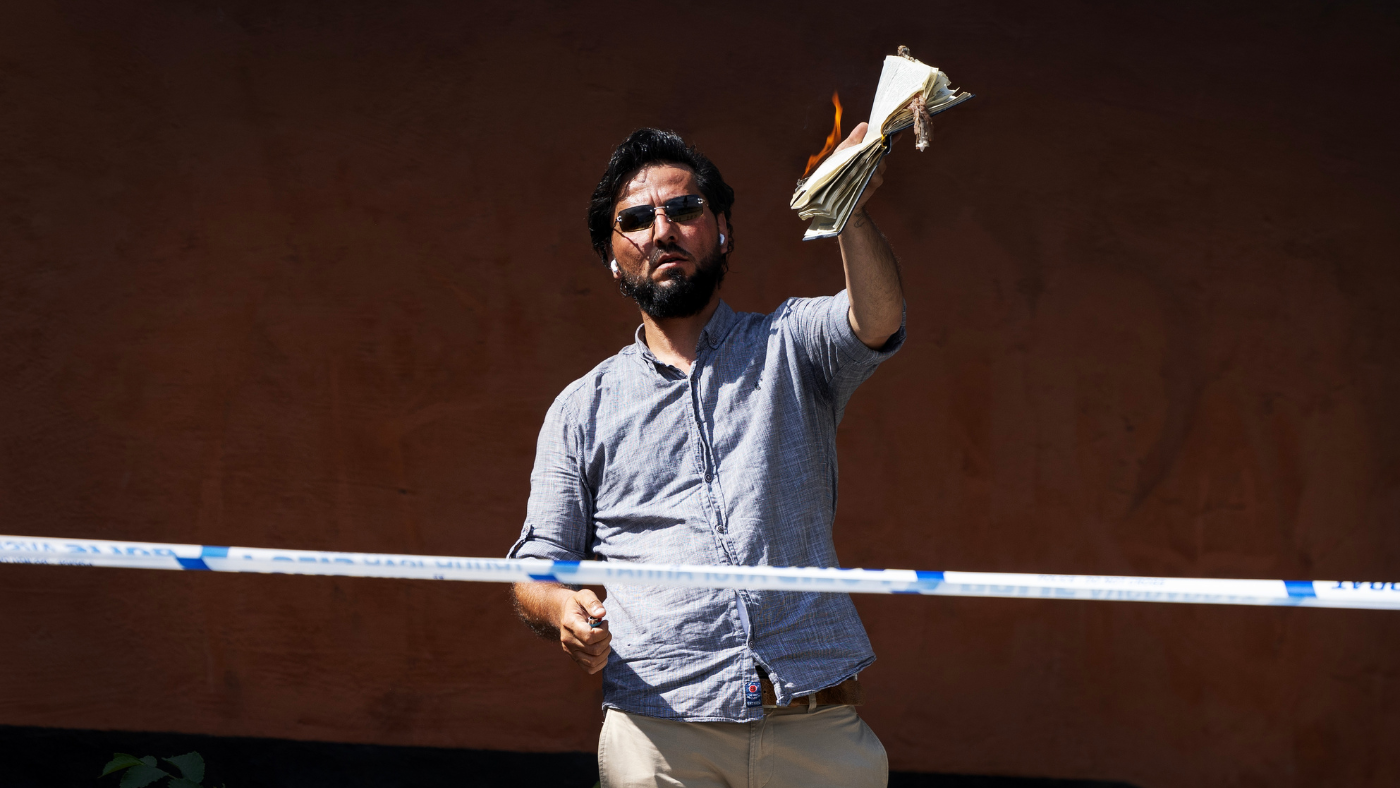 Koran burning in Scandinavia: freedom of expression’s ultimate test?
Koran burning in Scandinavia: freedom of expression’s ultimate test?Talking Point Anti-Islam demonstrations have sparked condemnation and raised constitutional challenges for Sweden and Denmark
-
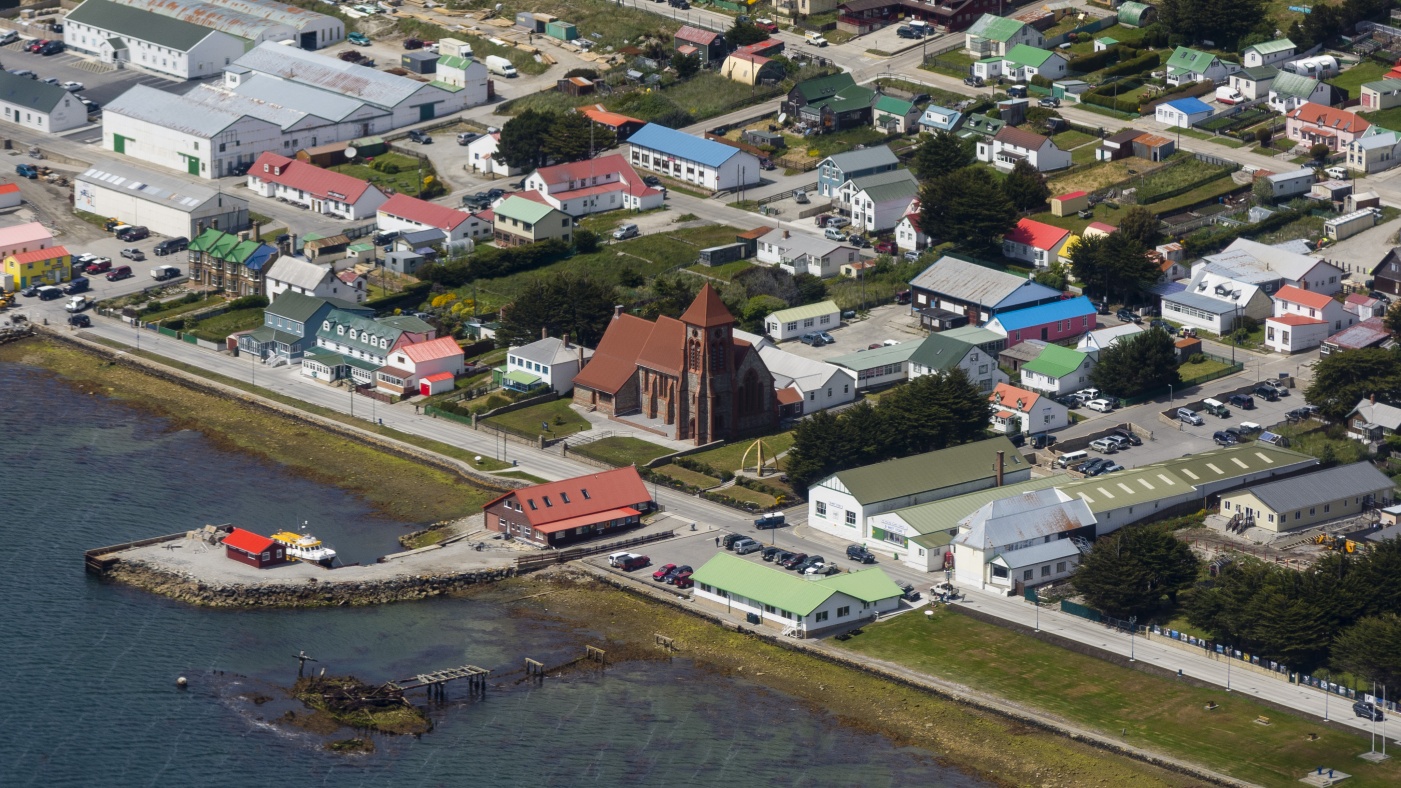 ‘Islas Malvinas’ and the new battle over the Falklands
‘Islas Malvinas’ and the new battle over the FalklandsTalking Point Argentina scores ‘major diplomatic win’ as EU refers to British territory by its disputed name
-
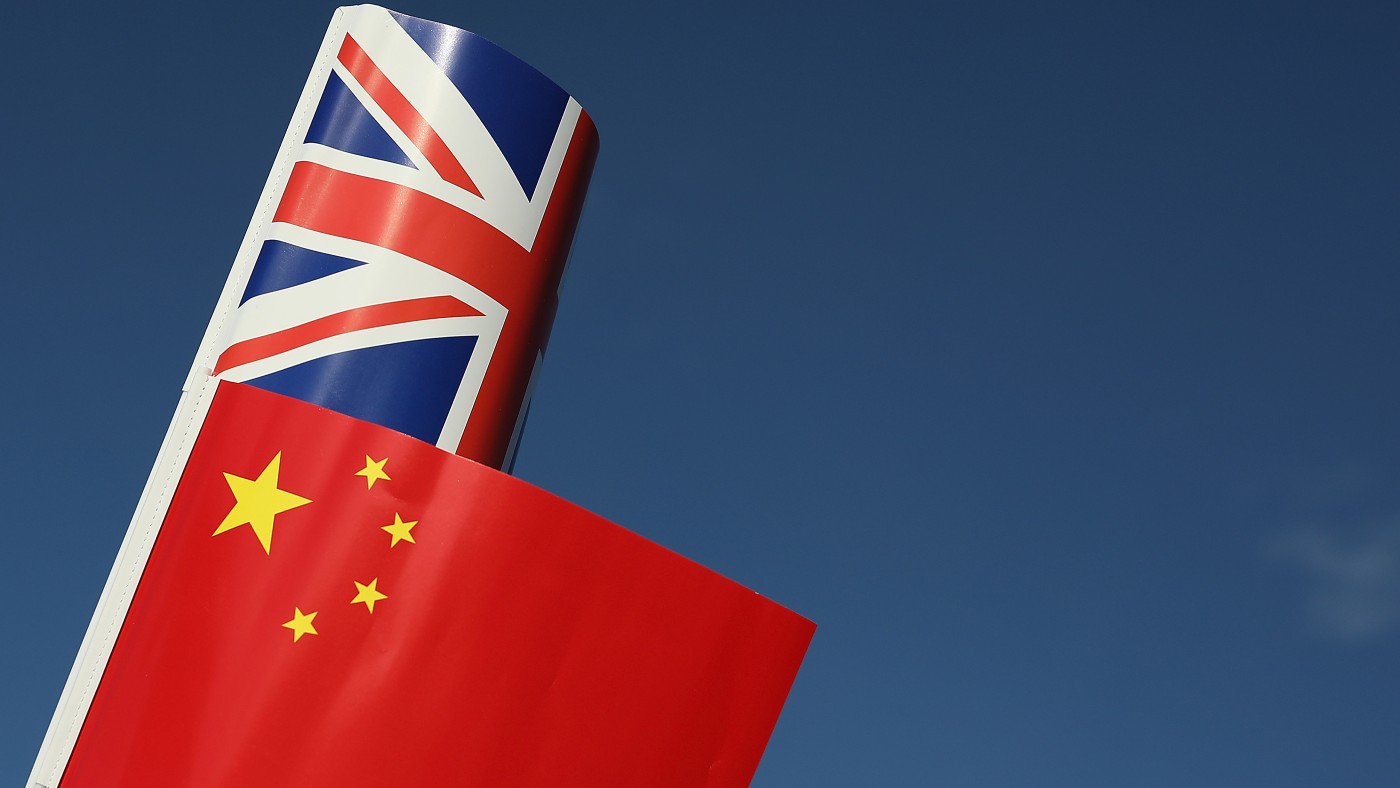 China’s ‘breathtaking’ infiltration of UK economy: an existential threat?
China’s ‘breathtaking’ infiltration of UK economy: an existential threat?Talking Point New report suggests Beijing is exerting political and economic influence on Westminster
-
 Residents told to stay indoors after lion seen on outskirts of Berlin
Residents told to stay indoors after lion seen on outskirts of BerlinSpeed Read Witnesses said they saw a big cat killing a wild boar near the German capital
-
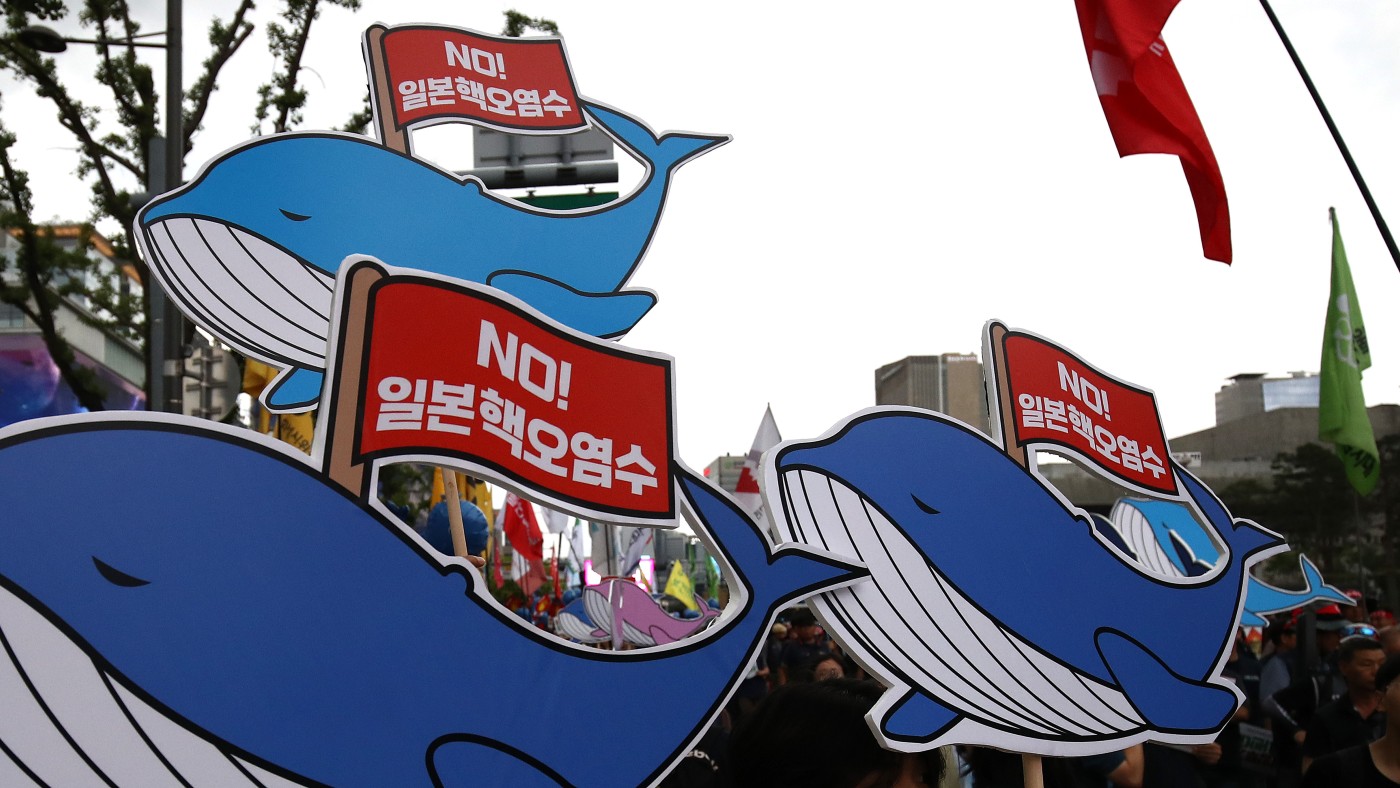 The Fukushima solution causing consternation in China
The Fukushima solution causing consternation in ChinaTalking Point Tokyo insists the water is no different to that regularly released by nuclear plants elsewhere